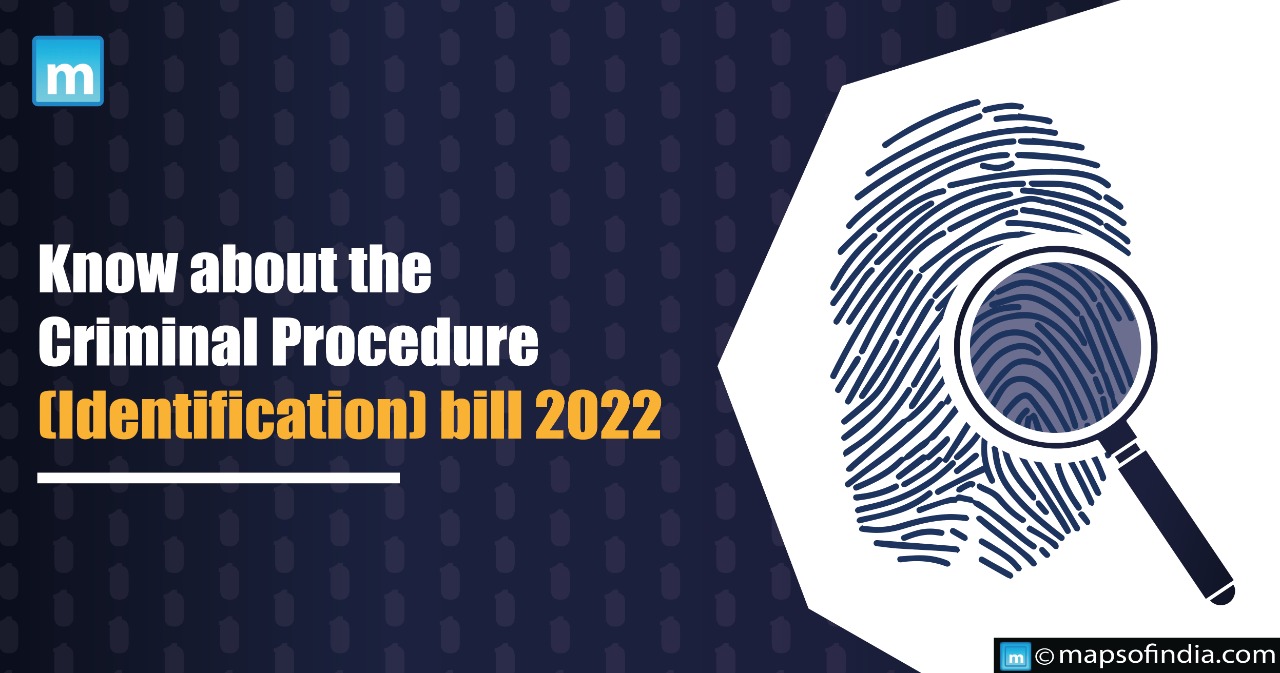On Monday, Lok Sabha passed the Criminal Procedure (Identification) Bill with a voice vote. It seeks to replace the identification of the Prisoners Act of 1920. The Union Minister of State (MoS) for Home, Ajay Misra Teni, introduced the bill on March 28 in the parliament’s lower house (Lok Sabha).
It was introduced to improve the conviction rate in the country and protect the human rights of the citizens. However, the opposition is already raising their voice against the bill; leader Adhir Ranjan Chowdhary called the bill ‘draconian’ while another MP, Manish Tewari, termed it as ‘illegal’ and said it violates Article 20(3) of the Constitution, which states, “No person accused of an offence shall be compelled to be a witness against himself,” including Article 14 (Equality before law), Article 21 (protection of life and personal liberty)
What is the Criminal Procedure (Identification) Bill 2022?
The Criminal Procedure (Identification) Bill authorizes law enforcement agencies to collect, store and analyze physical and biological samples of convicts and other individuals for identification and investigation in a criminal matter. It provides legal approval for taking appropriate body measurements of individuals required to give such measures and makes the investigation more efficient.
The 1920 Act seeks to define measurements which could include finger impressions, palm-print, and foot-print impressions, photographs. The 2022 Bill has biological samples and their analysis, behavioural attributes including signatures, handwriting, and examination under sections 53 and 53A of the Code of Criminal procedure (CrPC), including hair samples, blood, semen, and analyses such as DNA profiling.
Some other key takeaways from the bill
- The 1920 Act tells us individuals who are convicted or arrested for offences punishable with rigorous imprisonment of one year or more were the individuals whose data may be collected. Still, with the new bill convicted for any offence, the biological sample may be taken forcibly only when the crime is committed against a woman or a child or if the offence carries a minimum jail term of 7 years.
- In the previous act, the investigation officer, the Officer-in-charge of the police station, Sub-Inspector were allowed to collect such data. The head constable or any rank holder above that, head warden of the prison, were allowed to do so.
Who will maintain these records?
The bill allows retaining the data for 75 years in digital form and will be maintained by National Crime Records Bureau (NCRB). The NCRB will regularly share this data with law enforcement to assist them. Also, if an individual is acquitted or released without trial, his data will be deleted.
What if an individual refuses to give the sample?
Any refusal to give the samples in these cases will attract a fine of Rs 500 and a three-month prison term or both under section 186 of the Indian Penal Code (IPC). The Biological sample can be forcibly taken for certain crimes, including women or children.
